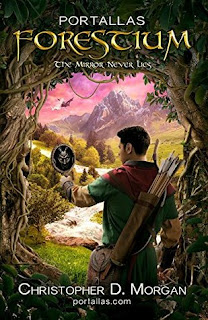The Importance Of A Good Editor
Every seasoned novelist will tell you that there is absolutely no substitute for a good editor.
An editor doesn’t just alert you to mistakes in spelling, grammar, sentence structure and punctuation; editing goes way beyond that. Your story needs to be consistent, factually correct, clear, and succinct. This might sound obvious, but when you are dealing with a 90,000 word novel, there are plenty of ways to muck it up on every single page.
So. You’ve written your first novel, or maybe you’ve just completed a letter to the editor of your local newspaper. Chances are you’ve read it several times, and it looks good to you. You’re excited about it. You’ve created a likable story or perhaps you’ve made some kind of definitive statement. Now you want to have it published.
Hold your horses, Kemosabe.
This last sentence is a perfect example of why you need an editor. I know what “Kemosabe” means, but do you? I was raised on The Lone Ranger and Tonto, but if you are considerably younger than I, you might not have a clue. And if you don’t, I may have just lost you as a reader. A good editor will bring this to your attention and make sure you use references that will be familiar to your target audience.
Every chapter in your novel needs to have a fresh beginning and a logical conclusion. The fresh beginning will keep your reader awake, and will revitalize his/her interest in your story. The logical conclusion will wrap up that particular scene and give the reader a breather. It may have taken you a week to write the chapter, and in that time you have been so wrapped up in the content of the storyline that you may have lost sight of what your reader knows at this point, and the pace of his reading experience. If your editor suggests that the chapter rambles, then clean it up and shorten it. If your editor says that something is missing or unclear, then you probably have left too much to the reader’s imagination.
Another important purpose of editing is to broaden your vocabulary so that highly descriptive words or phrases are not overused. A Thesaurus can help with this, but every author has a tendency to repeat himself in some way, either with specific words or sentence patterns. Repetition will blemish your story, and a good editor can spot it.
JanMarie Moullen edited my first three novels. She has an uncanny ability for recalling my use of unique adjectives and adverbs, and letting me know when they appear too often throughout the book. There were instances where she went back 50 pages or more in the text to find that I had used an unusually graphic word, and when it appeared for just a second time, much later in the book, it stood out to her as tiresome. And…she was right.
Overall, I took her advice about 95 percent of the time. I learned to trust her judgment, and it paid dividends. Several reviewers have commented on how crisp the editing is in my first novel. She deserves most of that credit.
ABOUT THE WRITER
Carl Schmidt (1946-) lived and traveled widely throughout Asia for seven years, including two years as a Peace Corps volunteer in the Philippines and five years in Japan, where he taught English. He chose Maine as the setting for his Jesse Thorpe Mysteries because he loves its rugged natural beauty and the charming idiosyncrasies of Mainers. He has also written and recorded three musical albums. In 2001, New Falcon Press published his non-fictional book, A Recipe for Bliss: Kriya Yoga for a New Millennium.
Currently, he is a freelance writer living in Sedona, Arizona with his lovely wife, Holly, and their faithful German shorthaired pointer, Alize.





